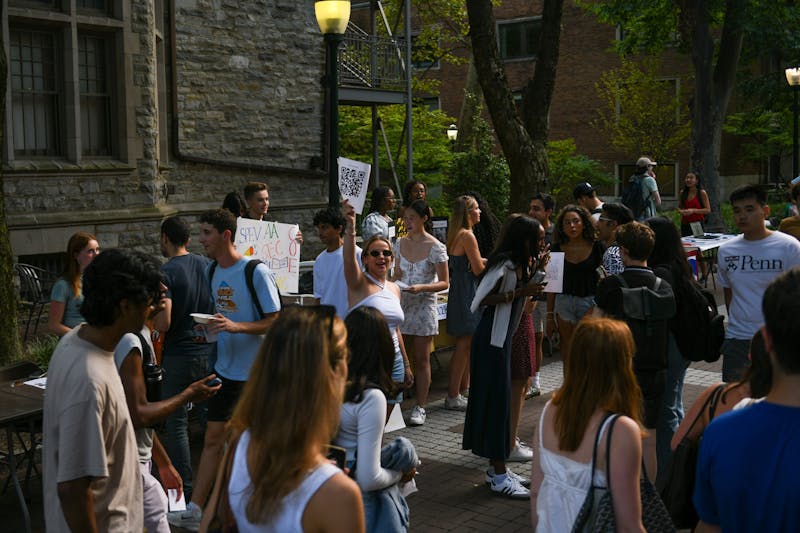The Ivy League has always has somewhat of a masochistic side.
Between disallowing athletic scholarships and prohibiting teams from participating in the football playoffs, the Ancient Eight has spent the better part of a century doing what it can to sabotage its athletic prowess.
But if certain league figures have their way, it may be about to get a whole lot worse. I'm talking about a men's basketball conference tournament, which according to Brown coach Craig Robinson, is "closer than I would ever have imagined."
Plenty has been written about how a tournament could damage Penn and Princeton, but might benefit the league as a whole. The Quakers and the Tigers dominate the league, keeping interest from other schools' students at a minimum. And the television exposure of a conference tournament would give the league a chance to showcase its talent.
But the two traditional league powers are not the only ones who would suffer from the institution of a conference tournament. In the long term, every team in the Ivy League would be harmed.
The way to ensure that the best team in the conference goes to the Tournament is to decide the representative based on 14 games, not three. The best team stands the best chance of getting out of the first round, bringing attention to the whole league.
That argument is nothing new. Proponents of a tournament often counter that the presumably nationally televised conference championship game would accomplish this just as well.
But within a few years, the damage that could be done to the entire league by sending the tournament winner to the Big Dance would be profound.
Let's say that there was a tournament this year, and 10-4 Yale were to beat (cross your fingers) 13-1 Penn. Now, you have Yale as the Ivy representative at the NCAAs. With four losses in a weak league, the Elis would receive a No. 16 seed, likely in the play-in game.
The problem is that having a team in the 64 or 65 slot sets a precedent that a conference may never break.
The last thing this conference needs is the selection committee to get in the habit of relegating Ivy teams to the play-in game. If established habits and weakened league reputation are enough to cost even a few more slots, then we've got even "legitimate" champs in the play-in game.
And if that happens, then Ivy sports have dropped yet another rung on the ladder of college athletics. In the short existence of the play-in game, certain leagues are perpetual donors of 65th-ranked teams. The Southwestern Conference, for example, already has three in six years. We don't need to join their ranks.
Couple this with the reality that no conference on the Ivy League's level actually makes money on these things, and there is really no reason for fans of any Ivy team to view a tournament as a good idea in the long term. All it would be is a selfish maneuver to benefit those schools that have shown an incredible inability to put together a winning program.
The bottom line is that until the league is strong enough where a team other than the regular-season winner would garner better than a 16 seed, a tournament is simply damaging to the league as an entirety.
When it comes to major sports, the Ivy League has the chips stacked against it. A conference tournament, no matter how tempting it may seem to some, would do nothing but finish the job.
Matt Conrad is a senior Physics major from Manalapan, N.J., and is former Senior Sports Editor of The Daily Pennsylvanian. His e-mail address is mlconrad@sas.upenn.edu.
The Daily Pennsylvanian is an independent, student-run newspaper. Please consider making a donation to support the coverage that shapes the University. Your generosity ensures a future of strong journalism at Penn.
DonatePlease note All comments are eligible for publication in The Daily Pennsylvanian.







